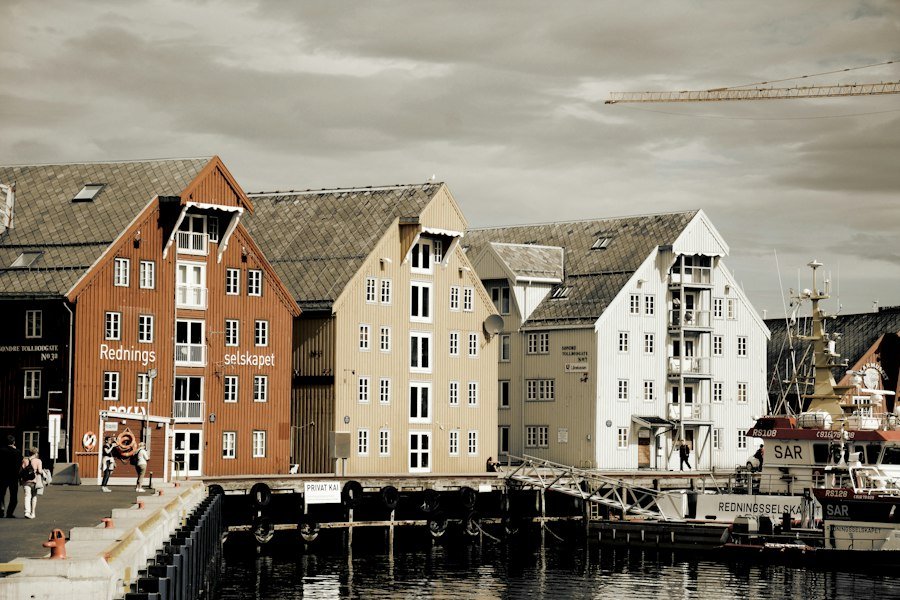

Norwegian Culture in 30 Expressions: Understanding the Local Mindset
Norway, located in Northern Europe, is known for its stunning landscapes, rich history, and unique cultural traditions. The country’s geography, with its fjords, mountains, and vast wilderness, has shaped the Norwegian way of life. The history of Norway is deeply rooted in Viking culture, which has had a significant influence on the modern Norwegian society.
The Vikings were seafaring warriors who lived in Norway during the Viking Age (800-1050 AD). They were known for their exploration, trade, and conquests. The Viking culture emphasized bravery, honor, and loyalty. Today, Norwegians still take pride in their Viking heritage and many cultural traditions are rooted in this history.
Modern Norwegian society is characterized by a strong sense of community, egalitarian values, and a deep connection to nature. Norwegians place a high value on social equality and fairness. The country consistently ranks among the top countries in the world for quality of life, education, and overall happiness.
Table of Contents
ToggleKey Takeaways
- Norwegian culture values expressions and communication
- Nature plays a significant role in the Norwegian mindset
- “Janteloven” influences Norwegian society and behavior
- “Koselig” is an important aspect of Norwegian lifestyle
- “Dugnad” and community spirit are highly valued in Norway
The Importance of Expressions in Norwegian Culture
In Norwegian culture, non-verbal communication plays a significant role in everyday interactions. Norwegians tend to be reserved and may not express their emotions openly. Instead, they rely on subtle gestures and facial expressions to convey their thoughts and feelings.
Eye contact is particularly important in Norwegian culture. It is seen as a sign of respect and attentiveness. Maintaining eye contact during conversations shows that you are engaged and interested in what the other person is saying. Avoiding eye contact can be seen as rude or disinterested.
Personal space is also highly valued in Norwegian culture. Norwegians tend to have a larger personal space compared to people from other cultures. They prefer to have some distance between themselves and others during conversations or interactions. Invading someone’s personal space can make them feel uncomfortable or threatened.
The Role of Nature in Norwegian Mindset
Norway is known for its breathtaking natural beauty, and Norwegians have a deep appreciation for the outdoors. The country is home to stunning fjords, mountains, and forests, which provide ample opportunities for outdoor activities such as hiking, skiing, and fishing.
The connection to nature is deeply ingrained in the Norwegian mindset. Norwegians believe in the healing power of nature and spending time outdoors is seen as a way to recharge and find inner peace. Research has shown that spending time in nature can have a positive impact on mental health, reducing stress and anxiety.
Norway’s commitment to preserving its natural environment is also reflected in its sustainable practices. The country has made significant efforts to protect its natural resources and reduce its carbon footprint. Norwegians take pride in their clean and pristine environment and strive to live in harmony with nature.
The Concept of “Janteloven” and Its Impact on Society
“Janteloven” is a concept that plays a significant role in Norwegian society. It refers to a set of unwritten social rules that emphasize humility, equality, and modesty. The concept is based on the idea that no individual should think they are better than others or stand out from the crowd.
The influence of “Janteloven” can be seen in Norwegian social behavior. Norwegians tend to value collective achievements over individual success. They are often modest about their accomplishments and avoid drawing attention to themselves. This can sometimes be seen as a lack of ambition or self-confidence by people from other cultures.
While “Janteloven” promotes equality and fairness, it can also have some drawbacks. It may discourage individuality and ambition, as standing out from the crowd is not encouraged. Some argue that it can lead to a culture of conformity and hinder innovation and creativity.
The Significance of “Koselig” in Norwegian Lifestyle
“Koselig” is a Norwegian word that roughly translates to “cozy” in English. It is a concept that is deeply ingrained in Norwegian lifestyle and plays a significant role in social interactions. Norwegians value creating a warm and inviting atmosphere, whether it’s in their homes, cafes, or social gatherings.
The importance of coziness can be seen in the way Norwegians decorate their homes. They often use warm colors, soft lighting, and natural materials to create a cozy and inviting space. Candles are also a common feature in Norwegian homes, adding to the cozy ambiance.
The impact of “koselig” on social interactions is significant. Norwegians value spending quality time with loved ones and creating a sense of intimacy and warmth. Whether it’s gathering around a fireplace, enjoying a home-cooked meal, or simply having a cup of coffee together, creating a cozy atmosphere is essential.
The Art of “Dugnad” and Community Spirit

“Dugnad” is a Norwegian tradition that involves voluntary work for the benefit of the community. It can range from cleaning up public spaces to organizing events or helping neighbors with household tasks. The concept of “dugnad” reflects the strong sense of community spirit in Norwegian culture.
Volunteering is deeply ingrained in Norwegian society, and it is seen as a way to contribute to the well-being of the community. Norwegians take pride in their communities and actively participate in activities that promote social cohesion and solidarity.
The impact of “dugnad” on community building is significant. It fosters a sense of belonging and strengthens social bonds. It also promotes a culture of cooperation and mutual support, where everyone contributes for the greater good.
The Norwegian Love for “Fika” and Coffee Culture
“Fika” is a Swedish word that has become popular in Norway as well. It refers to the act of taking a break, usually with a cup of coffee and a pastry, to socialize and relax. In Norwegian culture, “fika” is seen as an important part of daily life and is often enjoyed with friends, family, or colleagues.
Coffee plays a significant role in Norwegian culture. Norwegians are among the highest consumers of coffee per capita in the world. Coffee breaks are seen as an opportunity to connect with others, have meaningful conversations, and take a moment to relax and recharge.
The impact of “fika” on socializing is significant. It provides a space for people to come together, share stories, and build relationships. It also promotes a sense of well-being and helps create a positive work-life balance.
The Tradition of “Hygge” and Coziness
Similar to the concept of “koselig,” “hygge” is a Danish word that has gained popularity in Norway as well. It refers to creating a cozy and comfortable atmosphere and enjoying the simple pleasures of life. Norwegians value creating a sense of hygge in their daily lives.
The importance of coziness can be seen in the way Norwegians decorate their homes, as mentioned earlier. They also enjoy activities such as reading a book by the fireplace, having a home-cooked meal with loved ones, or simply enjoying a quiet evening at home.
The impact of “hygge” on mental health is significant. Creating a cozy and inviting atmosphere can help reduce stress and promote relaxation. It also encourages mindfulness and being present in the moment, which can have a positive impact on overall well-being.
The Concept of “Friluftsliv” and Outdoor Living
“Friluftsliv” is a Norwegian word that translates to “open-air living” in English. It refers to the love for outdoor activities and spending time in nature. Norwegians have a deep connection to their natural environment and value the physical and mental benefits of being outdoors.
Outdoor activities such as hiking, skiing, fishing, and camping are popular in Norway. Norwegians believe that spending time in nature is essential for their well-being. Research has shown that being in nature can reduce stress, improve mood, and increase overall happiness.
The impact of “friluftsliv” on physical and mental health is significant. It promotes an active lifestyle and encourages people to stay fit and healthy. It also provides an opportunity to disconnect from the digital world and reconnect with nature.
The Norwegian Approach to Work-Life Balance and “Pålegg” Culture
Norwegians place a high value on work-life balance. They believe in the importance of having time for leisure activities, spending time with family and friends, and pursuing hobbies and interests outside of work. Norwegians strive to create a healthy balance between work and personal life.
The concept of “pålegg” is also significant in Norwegian culture. It refers to the practice of putting toppings on bread, such as cheese, ham, or spreads. Norwegians value simplicity and convenience when it comes to meals, and “pålegg” reflects this approach.
The impact of work-life balance on productivity and well-being is significant. Research has shown that employees who have a healthy work-life balance are more engaged, motivated, and productive. They also have better mental health and overall well-being.
In conclusion, Norwegian culture is a unique blend of history, geography, and modern society. The importance of expressions, nature, community, and coziness are deeply ingrained in the Norwegian mindset. Understanding these concepts can help us appreciate and adopt some of the positive aspects of Norwegian culture in our own lives. Whether it’s embracing the outdoors, creating a cozy atmosphere at home, or valuing work-life balance, there are valuable lessons we can learn from Norwegian culture.
If you want to learn Norwegian, you can register for classes here. We look forward to hearing from you and helping you become fluent in Norwegian.





